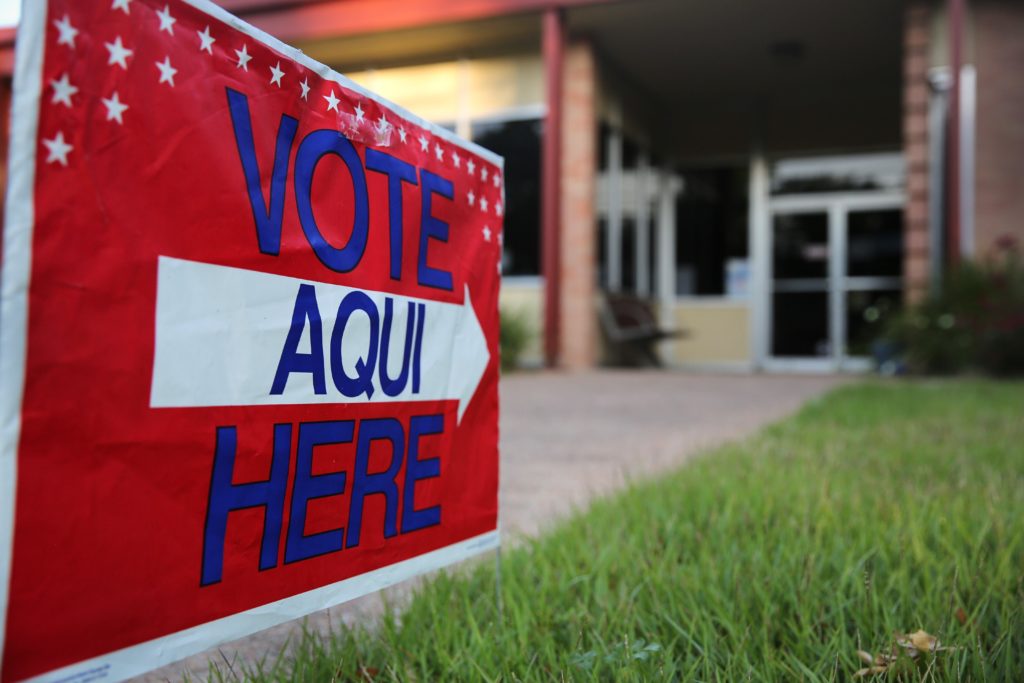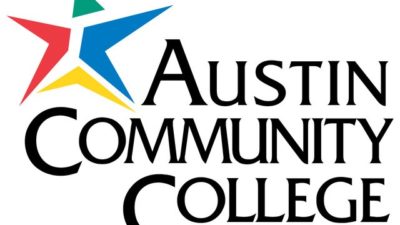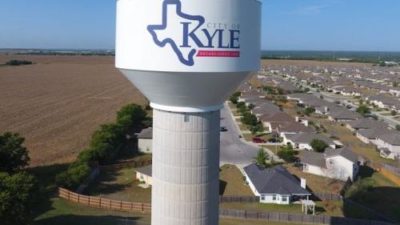Early voting is underway officially this week, both for voters statewide and for voters within Austin. Across the state, eight different amendments to the Texas Constitution are up for a vote. Within the city limits of Austin, two propositions are also on the ballot, including the hotly contested Proposition A — a petition-led effort spearheaded by local nonprofit Save Austin Now to increase police staffing.
The two local propositions are detailed as follows:
PROPOSITION A (Policing):
If Proposition A passes, the City of Austin will be required to increase the number of police officers within the Austin Police Department. It would mandate that:
• Austin always employs at least two sworn police officers for every 1,000 Austin residents;
• Police officers spend at least 35% of their time in community engagement;
• The City holds enough full-term police cadet classes until the department returns to the numbers of police officers prescribed in the 2019-2020 city budget;
• All sworn police officers spend an additional 40 hours each year in mandatory continuing education and in-service training (above the hours required by the Texas Commission on Law Enforcement), with an emphasis on training outside a classroom setting intended to equip the officers to handle evolving, fluid, dangerous situations and enhance their own safety and that of the public;
• Increase pay or paid time off for police officers who speak one of the five most common non-English languages spoken in the city or who participate in a mentoring program for new police cadets; officers would also be eligible for added pay or paid time off every five years if they are in good standing.
PROPOSITION B (Parkland):
If Proposition B is passes, the City of Austin would look to sell, lease, or exchange nine acres of park property (known as Central Maintenance Complex located 2525 S. Lakeshore Blvd) in exchange for:
•at least 48 acres of waterfront land, and
•the cost of a new maintenance facility on other City-owned land to be determined, and
•partial or full funding for the removal of Fiesta Garden’s existing maintenance facility (located at 2202 Jesse E. Segovia Street) and restoration of that land to parkland.
In the statewide election, the proposed Constitutional amendments are as follows:
PROPOSITION NUMBER 1 (HJR 143)
HJR 143 proposes a constitutional amendment expanding the circumstances in which a professional sports team charitable foundation may conduct raffles to raise money for the foundation’s charitable purposes. The proposed amendment would allow professional sports team charitable foundations of organizations sanctioned by the Professional Rodeo Cowboys Association or the Women’s Professional Rodeo Association to hold charitable raffles at rodeo events.
The proposed amendment will appear on the ballot as follows: “The constitutional amendment authorizing the professional sports team charitable foundations of organizations sanctioned by the Professional Rodeo Cowboys Association or the Women’s Professional Rodeo Association to conduct charitable raffles at rodeo venues.”
PROPOSITION NUMBER 2 (HJR 99)
HJR 99 proposes a constitutional amendment allowing the legislature to authorize a county to issue bonds or notes to finance the development or redevelopment of an unproductive, underdeveloped, or blighted area within the county and to pledge for repayment of those bonds or notes increases in property tax revenues imposed on property in the area by the county. The Texas Constitution gives the legislature the power to authorize an incorporated city or town to issue such bonds or notes but does not expressly give the legislature the power to grant that same authority to counties. The proposed amendment also provides that a county that issues bonds or notes for transportation improvements may not pledge for the repayment of those bonds or notes more than 65 percent of the increases in ad valorem tax revenues each year, and a county may not use proceeds from the bonds or notes to finance the construction, operation, maintenance, or acquisition of rights-of-way of a toll road.
The proposed amendment will appear on the ballot as follows: “The constitutional amendment authorizing a county to finance the development or redevelopment of transportation or infrastructure in unproductive, underdeveloped, or blighted areas in the county.”
PROPOSITION NUMBER 3 (SJR 27)
SJR 27 proposes a constitutional amendment barring the State of Texas or a political subdivision from enacting, adopting, or issuing a statute, order, proclamation, decision, or rule that prohibits or limits religious services. The proposed amendment would apply to religious services, including those conducted in churches, congregations, and places of worship, in the state by a religious organization established to support and serve the propagation of a sincerely held religious belief.
The proposed amendment will appear on the ballot as follows: “The constitutional amendment to prohibit this state or a political subdivision of this state from prohibiting or limiting religious services of religious organizations.”
PROPOSITION NUMBER 4 (SJR 47)
SJR 47 proposes a constitutional amendment changing certain eligibility requirements for a justice of the Supreme Court, a judge of the Court of Criminal Appeals, a justice of a court of appeals, and a district judge. The proposed amendment provides that a person is eligible to serve on the Supreme Court if the person, among other qualifications, is licensed to practice law in Texas; is a resident of Texas at the time of election; has been either a practicing lawyer licensed in Texas for at least ten years or a practicing lawyer licensed in Texas and a judge of a state court or county court established by the legislature for a combined total of at least ten years; and during that time has not had the person’s license to practice law revoked, suspended, or subject to a probated suspension. The same eligibility requirements would apply to a judge of the Court of Criminal Appeals and to a justice of a court of appeals. The proposed amendment further provides that to be eligible for appointment or election as a district judge, a person must be a resident of Texas; be licensed to practice law in Texas; and have been a practicing lawyer or a judge of a court in Texas, or both combined, for eight years preceding the person’s election, during which time the person’s license to practice law has not been revoked, suspended, or subject to a probated suspension.
The proposed amendment will appear on the ballot as follows:“The constitutional amendment changing the eligibility requirements for a justice of the supreme court, a judge of the court of criminal appeals, a justice of a court of appeals, and a district judge.”
PROPOSITION NUMBER 5 (HJR 165)
HJR 165 proposes a constitutional amendment allowing the State Commission on Judicial Conduct (SCJC) to accept complaints or reports, conduct investigations, and take any other authorized action with respect to a candidate for a state judicial office. Currently, the Texas Constitution only permits the SCJC to take such actions as to persons holding a judicial office.
The proposed amendment will appear on the ballot as follows:“The constitutional amendment providing additional powers to the State Commission on Judicial Conduct with respect to candidates for judicial office.”
PROPOSITION NUMBER 6 (SJR 19)
SJR 19 proposes a constitutional amendment establishing that residents of certain facilities have the right to designate an essential caregiver with whom the facility may not prohibit in-person visitation. The proposed amendment would apply to a nursing facility, assisted living facility, intermediate care facility for individuals with an intellectual disability, residence providing home and community-based services, or state supported living center. The proposed amendment also would authorize the legislature to provide guidelines for these facilities to follow in establishing essential caregiver visitation policies and procedures.
The proposed amendment will appear on the ballot as follows: “The constitutional amendment establishing a right for residents of certain facilities to designate an essential caregiver for in-person visitation.”
PROPOSITION NUMBER 7 (HJR 125)
HJR 125 proposes a constitutional amendment permitting a person who is 55 years of age or older at the time of death of their spouse who is receiving a limitation on school district property taxes on their residence homestead on the basis of a disability to continue receiving the limitation while the property remains the surviving spouse’s residence homestead.
The proposed amendment will appear on the ballot as follows: “The constitutional amendment to allow the surviving spouse of a person who is disabled to receive a limitation on the school district ad valorem taxes on the spouse’s residence homestead if the spouse is 55 years of age or older at the time of the person’s death.”
PROPOSITION NUMBER 8 (SJR 35)
SJR 35 proposes a constitutional amendment authorizing the legislature to exempt from ad valorem taxation all or part of the market value of the residence homestead of the surviving spouse of a member of the United States armed services who is killed or fatally injured in the line of duty. The Texas Constitution provides a property tax exemption to the surviving spouse of a member of the armed services who is killed in action, but the current exemption does not include members of the military who die during their service due to injuries sustained that are not combat-related.
The proposed amendment will appear on the ballot as follows: “The constitutional amendment authorizing the legislature to provide for an exemption from ad valorem taxation of all or part of the market value of the residence homestead of the surviving spouse of a member of the armed services of the United States who is killed or fatally injured in the line of duty.”
Early voting ends on October 29. Election Day is Tuesday, November 2, 2021.





